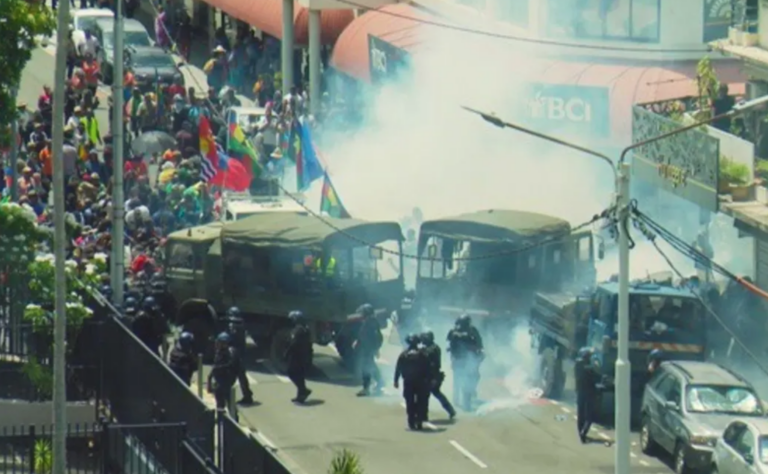
Anti-colonial militants clashed with police in downtown Nouméa on Wednesday as three French government ministers visited New Caledonia this week.
The crowd – an estimated 2000 according to organisers – had been called to voice their opposition to a French-planned constitutional amendment process.
Five policemen were reported to have been injured at various levels, including one seriously hit by rocks.
The protest had been called and organised by Union Calédonienne’s “field action coordinating cell” (Cellule de Coordination des actions de terrain, CCAT), which consists of trade union USTKE and UC’s close ally, the Labour party.
New Caledonia was originally colonized by France in 1853. The island was used by France as a penal colony, where they sent many Communards, including anarchist Louise Michel. The French exploited New Caledonia’s natural resources, particularly nickel, while excluding the indigenous Kanak people from the economic benefits, while placing them in reservations. Many of the Kanak tribes united to rebel against French colonization with a guerrilla struggle in 1878 and later in a major uprising in 1917. More recently, between 1976 and 1988, Kanak resistance groups seized territory, killed gendarmes, and took others hostage. New Caledonia remains a French overseas territory, but anti-colonial resistance has continued.